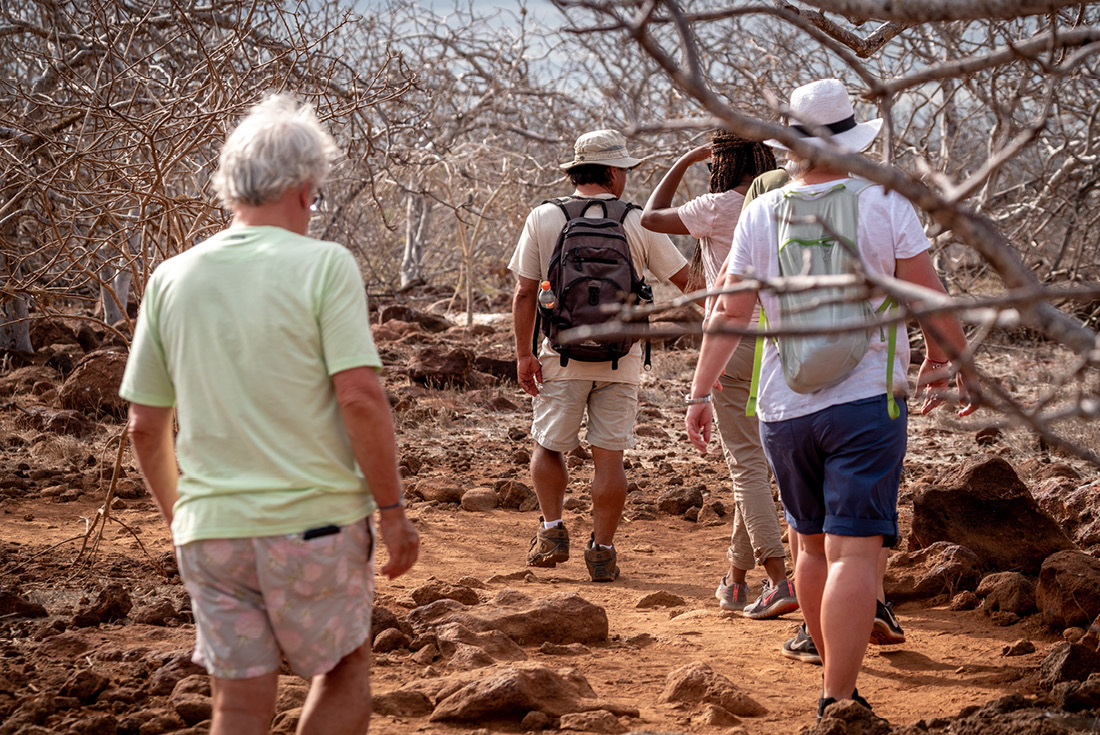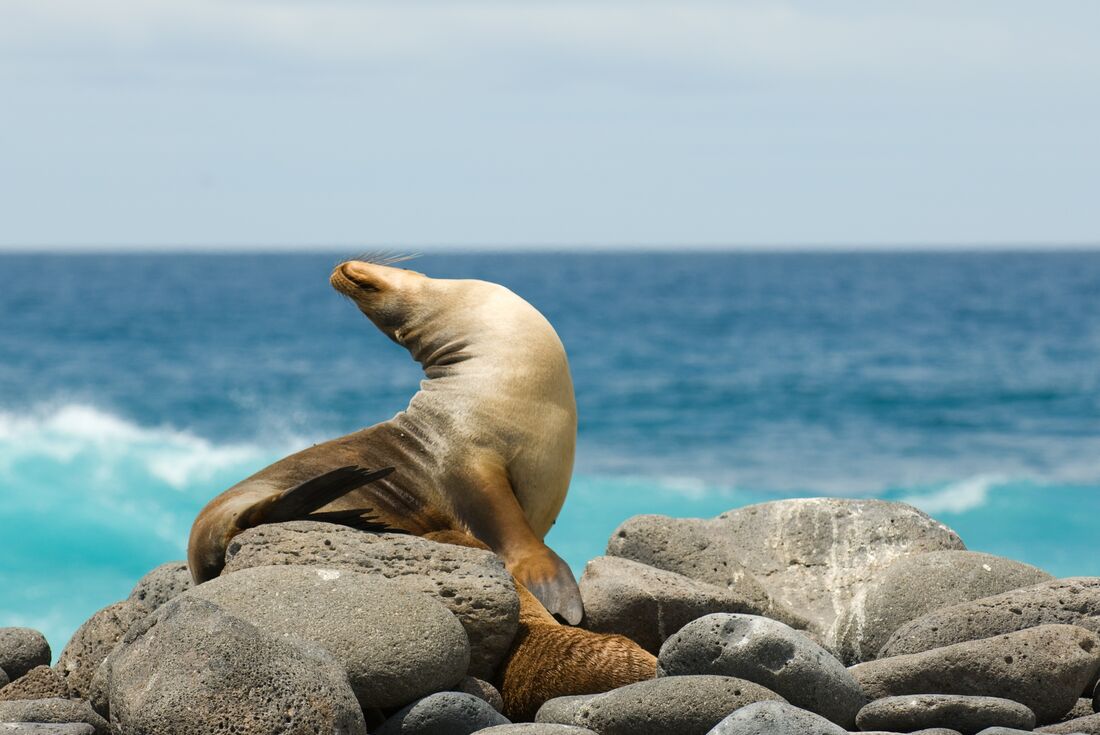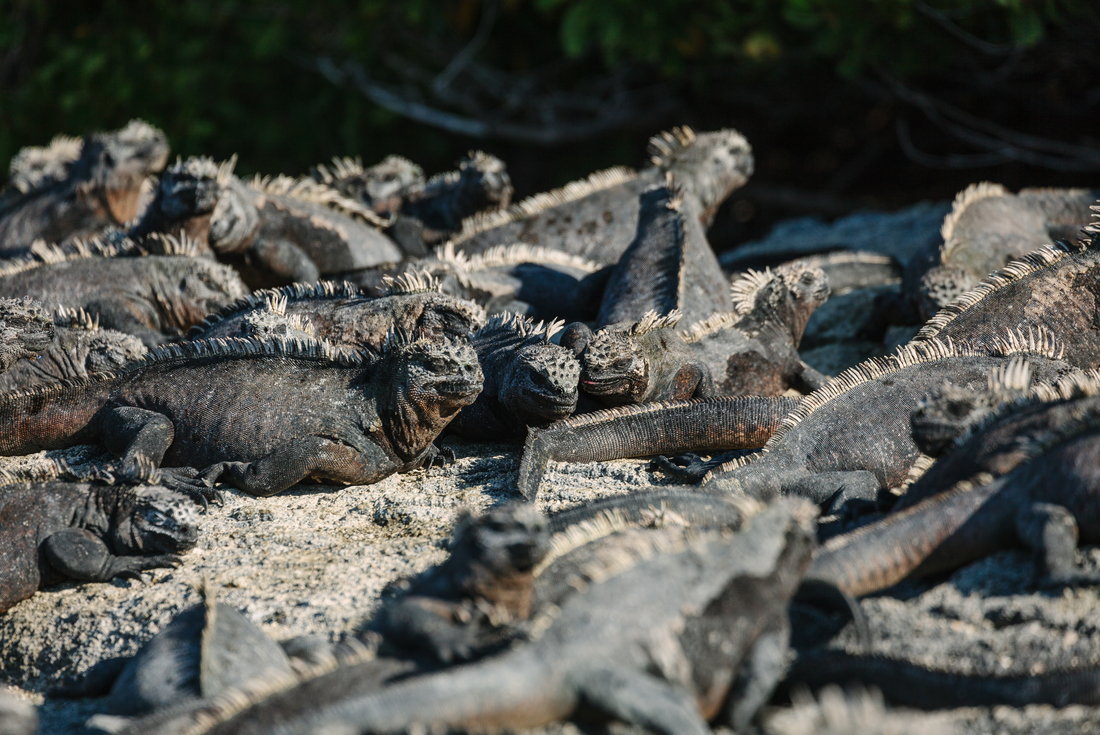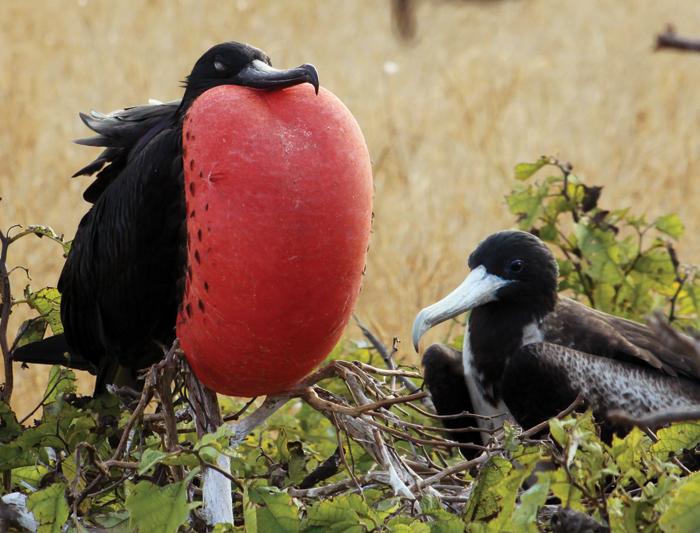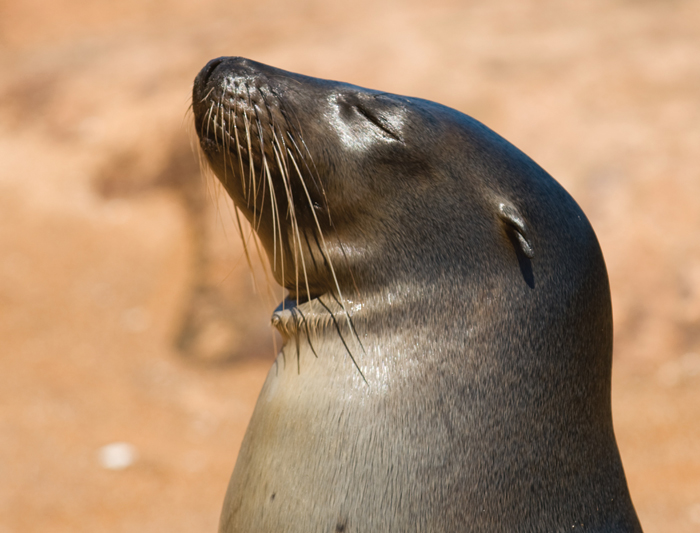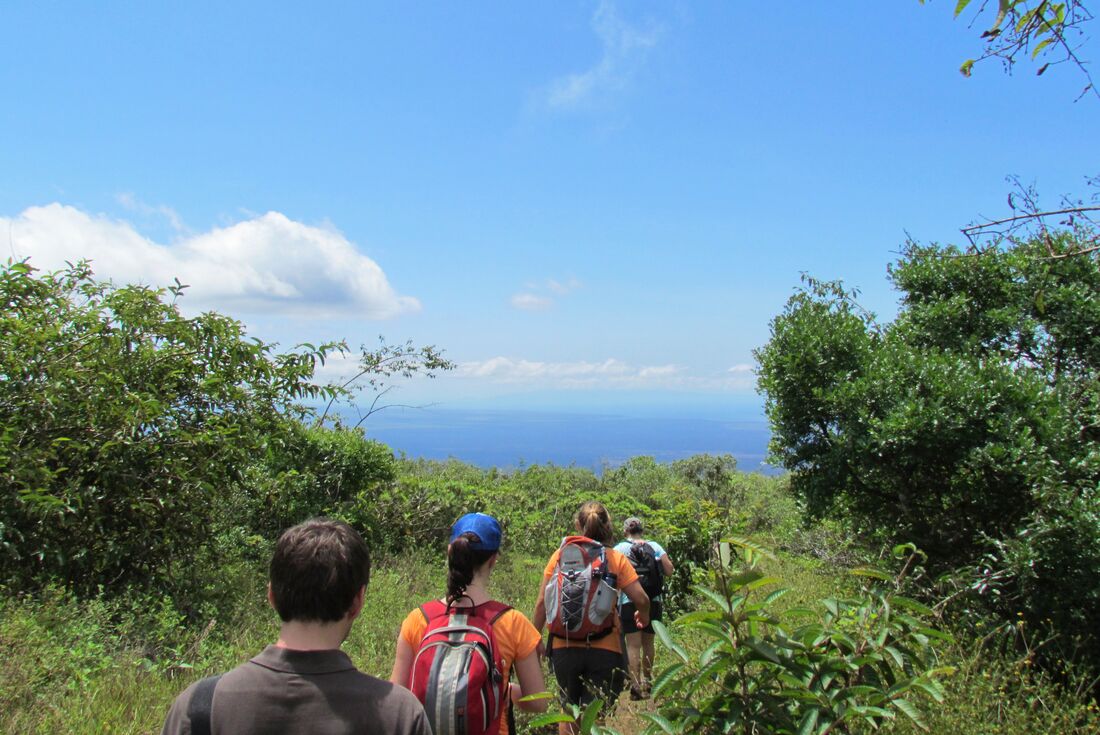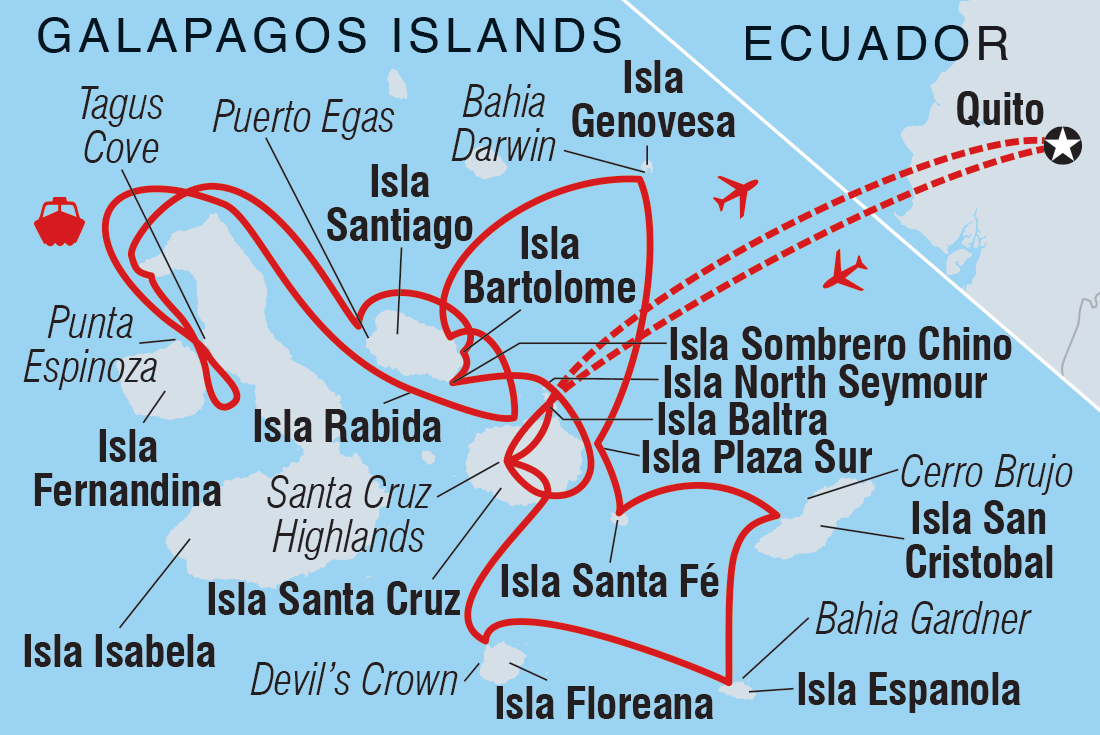SUMMARY
Discover the endemic wildlife, bizarrely beautiful landscapes and underwater treasures of the Galapagos Islands on this immersive 17-day cruise. Explore both the traveller’s favourites and quiter parts of the archipelago, all with a passionate local naturalist on hand to guide you over pahoehoe lava and through marine iguana colonies. Snorkel in clear waters off the coast of Isla Espanola, paddle through a green turtle breeding grove on Isla Floreana, look out for mottled Galapagos hawks on Isla Fernandina, and wander between sea lions lounging on beaches with red, black and white sand.
TOTAL DURATION : 17 Days
GROUP SIZE : MIN 1 MAX 16
TOUR ITINERARY AND DATES
START : Quito
END : Quito
COUNTRIES VISITED : Ecuador
Validity : 30 JUN 2020 To 31 DEC 2024
Day :1
Location : Quito
Bienvenidos! Welcome to Ecuador. The adventure gets under way in Quito, Ecuador’s sprawling but refined capital city. A welcome meeting will be held this evening at either 5 pm or 6 pm, but aside from that you are free to check out the city on your own today. If you arrive with time to spare, perhaps head to Quito’s Old Town and pick one (or more) of the 30 churches to explore. After your welcome meeting, head to a small, local restaurant for dinner with your group. You can expect some pretty mouth-watering aromas from the fresh flavours of traditional Ecuadorian cuisine. Think quinoa, pork and vegetable dishes laced with local herbs, lemongrass and rich sauces all sourced from local farms. You might even get to try the traditional Locro (potato soup).
Day :2
Location : Isla Baltra - Santa Cruz Highlands
Rise and shine! An early start is necessary this morning to make it to the Galapagos with time to play today. This could mean leaving as early as 4.30 am, due to flight times. Transfer to Mariscal Sucre International Airport (aka Quito Airport), enjoying a boxed breakfast on the way. After your flight, arive in the Galapagos and collect your luggage before you meet your naturalist guide in the arrival hall. Follow your guide on a public bus for a short distance, then board the public ferry and head across the Itabaca Channel. Once you reach Isla Santa Cruz, board a private bus to the highlands. After a short journey, arrive at Los Gemelos – twin sinkholes created by the collapse of surface material in underground fissures and chambers. They are surrounded by the unique scalesia cloud forest, so be on the lookout for the abundant birdlife including different species of Darwin finches, woodpeckers, warbler finches and vermillion flycatchers. Continue further into the highlands (approximately 30 minutes) and explore a rancho farm, where you will take a walk and later enjoy lunch. The approximately 2-kilometre walk around the area will likely reveal giant tortoises in their natural habitat. After lunch, travel to Puerto Ayora, where Le Grande Daphne and her crew will be waiting for you. Once on board, you’ll be assigned a cabin and have a chance to settle in for your first night on the islands before a safety briefing.
Day :3
Location : Post Office Bay - Punta Cormorant - Devils Crown, Isla Floreana
Discover the quirky maritime history of Post Office Bay, home of the oldest postal system in the Americas. There’s a post box here that was first built by 18th-century whalers and is still in use today. Perhaps leave a letter to be collected by another traveller or look for one you can deliver. Snorkelling and a Zodiac ride are also included in this outing. Afterwards, head ashore at Punta Cormorant where the sand is made up of fine olivine crystal, a glassy volcanic mineral that gives the beach an olive-green colour. Take a 1-kilometre walk in search of sea lions, flamingos, pintails and stilts. Finish at a sandy beach where Eastern Pacific green turtles nest. Just offshore, the famous Devil’s Crown waits for those who want a special snorkelling experience. The partially-submerged remains of a volcanic cone, Devil’s Crown is now a unique swimming hole and home to rays, sharks, sea lions and turtles.
Day :4
Location : Punta Suarez - Bahia Gardner, Isla Espanola
Wake up and take a hike on Isla Espanola, the southernmost island of the Galapagos. It is the breeding site for almost all of the estimated 24,000 waved albatrosses on earth. If you’re lucky (and the timing is right), you might spot the elaborate courtship rituals performed by albatrosses before the female chooses her lifelong mate during your walk. Hike through booby colonies to the rocky trails of beautiful Punta Suarez. This 3-km hike culminates at a clifftop viewpoint. Gaze out over views of rugged cliffs framed by swooping frigate birds, watching while albatross use the cliffs as their ‘runway’, getting airborne on the southeast winds. Next, head to Bahia Gardner for a walk along the beach. Dodge lounging sea lions on this 1-kilometre walk, then cool off with a spot of snorkelling. The rocks off the coast are rich with reef sharks, turtles and many species of tropical fish (such as surgeon and angelfish). Small white-tipped reef sharks can also be spotted resting under the rocks.
Day :5
Location : Kicker Rock - Cerro Brujo - Puerto Baquerizo Moreno, Isla San Cristobal
Shake off any early morning doziness with a trip to Leon Dormido (Kicker Rock). This basalt crater rises 150 metres above the water and is divided into two parts by a narrow channel. Cruise around kicker rock as nesting seabirds flank the boat, tropicbirds soar overhead and sea lions lounge by the water. Next, spend some time snorkelling at Cerro Brujo, providing opportunities to see Galapagos sharks and sea turtles. Or perhaps enjoy the beautiful beach with a leisurely walk to photograph the interesting sea lions who can often be seen at this location. Later, sail to Puerto Baquerizo Moreno on the island of San Cristobal. Some passengers will be leaving and others joining the group today, so you have some free time to explore the town of San Cristobal. In the afternoon you will visit the San Cristobal Interpretation Centre, which brings the history and geography of the archipelago to life, from its volcanic origins to the present day. If there’s time, your guide may be able to organise an optional visit to the highlands of San Cristobal, for a chance to see giant tortoises in the wild. The price of this optional activity depends on the number of passengers attending. Relaxing on the beach is a great option for those who don’t wish to partake in this excursion.
Day :6
Location : Isla Santa Fe - Isla Plaza Sur
Sea lions, iguanas and hawks – oh my! Isla Santa Fe is home to all three, plus Galapagos mockingbirds, marine turtles, frigate birds, Galapagos doves and lava lizards. This stunning island boasts one of the most attractive coves in the whole archipelago. Take a hike along the coast into the opuntia forest (approximately 1.5 hours). The trail is rocky, so mind your step and make sure you’re wearing good walking shoes. Later enjoy a snorkel in deep water and look out for schools of fish, rays and sea turtles. After, continue to Isla Plaza Sur, a small, picturesque island. Take another walk (approximately 1.5 hours), getting close to sea lions and passing one of the Galapagos’s largest land iguana populations. The southern cliffs are great for spotting tropicbirds and swallow-tailed gulls, as well as ‘the Gentlemen’s Club’ – a gathering of male sea lions. Today there may be an extra stop on the way to Plaza Sur to restock the provisions for the boat.
Day :7
Location : Bahia Darwin - Prince Philip's Steps, Isla Genovesa
Explore Isla Genovesa, the archipelago's north-eastern outpost. The island’s varied landscapes are a twitcher's paradise, with all three kinds of boobies, including the rare red-footed booby, nesting here. Next, Bahia Darwin (Darwin Beach) is another superb birding site with large breeding colonies of seabirds, frigates, lava herons, swallow-tailed gulls, mockingbirds, and vampire finches. Enjoy a moderate walk (approximately 2.5 hours) that passes tide pools, sea lions and diamond stingrays. This walk involves sand and some rocky sections. The steep Prince Philip's Steps lead you to the heart of the seabird rookeries, with birds swirling overhead and nesting among the cliffs. Look out for storm petrels on the island’s rocky plains – Genovesa is the only place in the world where these birds can be seen flying during the day. Afterwards, perhaps cool off with a snorkel, during which you could encounter manta rays, sharks, turtles and moray eels, plus many species of fish.
Day :8
Location : Bahia Sullivan, Isla Santiago - Cerro Dragon, Isla Santa Cruz
On Santiago Island's eastern coast sits Bahia Sullivan. Take a walk along pahoehoe lava (approximately 1 hour), which was created by an eruption that occurred here in 1897. With some luck you might see some marine iguanas, Sally Lightfoot crabs, sea lions, finches, turtles, sharks and penguins. During your walk, as always, your naturalist guide will take you through the geological history of the island. Travel to Cerro Dragon (Dragon Hill): one of the best places to see land iguanas in the islands. From our dry landing, walk to a brackish, lagoon spotting lagoon birds such as stilts, pintail ducks, sandpipers, sanderlings and flamingos. Further inland, the trail offers a beautiful view of the bay and the western area of the archipelago. This area is a nesting site for land iguanas, which is constantly monitored and assisted by the Charles Darwin Research Station. The arid-zone vegetation makes for an ideal place to see Darwin's finches, Galapagos mockingbirds, the endemic Galapagos flycatcher and yellow warblers. The path can be challenging but it will be worth it for a spectacular view of the bay.
Day :9
Location : Black Turtle Cove - Las Bachas, Isla Santa Cruz
Explore Caleta Tortuga Negra (Black Turtle Cove) on a Zodiac. This red mangrove wetland is located on the north shore of Isla Santa Cruz. Cruise through this peaceful cove and look out for mating green turtles, as well as golden cow-nose rays, eagle rays and Galapagos sharks. Head to Las Bachas, where the soft sand made of decomposed coral is a nesting site for the Pacific green turtle. Marine iguanas are also commonly spotted along the beach. The rocks make for excellent snorkelling and are populated by Sally Lightfoot crabs which are plentiful on the island. A saltwater lagoon just near the beach is home to flamingo and whimbrel – you might also see a great blue heron. Remnants of a floating pier, a testimony to the US presence in the Galapagos during World War II, can also be seen.
Day :10
Location : Isla Rabida - Punta Albemarle, Isla Isabela
Today you will sail from Las Bachas to Isla Rabida, known for its spectacular red sand beaches, caused by the high content of iron in the sand which rusts to form the unusual shade. Follow a trail from the shore along to a lagoon which is one of the best spots in the Galapagos to view flamingos. Keep an eye out for nesting pelicans, pintail ducks, marine iguanas and sea lions – all are commonly sighted on the island. Check out a vast opuntia cactus forest, hinting at the previous habitation of land iguanas, Galapagos hawks, mockingbirds, doves, finches and lava lizards. You may like to take the chance to go snorkelling and seek out sea stars, damsels, gobbies and surgeon fish. In the afternoon, head to Albemarle on the northeast side of Isabela Island. Covered in mangroves, the bay is home to sea turtles, sea lions, penguins and flightless cormorants who feed on the algae and fish here. Another fantastic location for snorkeling, you may like to have a look beneath the water’s surface in search of sea turtles and flightless cormorants.
Day :11
Location : Tagus Cove - Bahia Urbina, Isla Isabela
Sail overnight from Punta Albermarle around to the western shores of Isla Isabela. Wake up near Tagus Cove, where pirates and whalers used to collect tortoises for their travels. Enjoy a short visit here (approximately 2 hours), perhaps snorkelling or checking out the graffiti on the walls (the oldest of which is from 1836). Witness flightless cormorants, blue-footed boobies, a variety of waterfowl and the most northerly penguins in the world. You will walk to a lookout point for a stunning view of the north of Isabela Island and Volcan Wolf (Wolf Volcano). Today you will also visit Bahia Urbina on the west of Isabela Island, Urbina Bay has a wide variety of plant life which changes depending on the season. You will be able to observe the beautiful color of the plants which attracts many different insects. The site also features a short trek inland, where giant tortoises can be spotted amongst the bushes in their natural habitat. You may also see land iguanas which often nest in the middle of the trail where their distinctive, textured and yellowish skin can be observed from up close. Flycatchers, Darwin’s finches and mockingbirds are common on the ground and in the trees.
Day :12
Location : Punta Espinosa, Isla Fernandina - Punta Vicente Roca, Isla Isabela
Today, visit Punta Espinosa that is a narrow ledge of lava and sand extending from the base of La Cumbre volcano. Take a walk around the beautiful peninsula, which boasts such wildlife and plant life as lava cacti, marine iguanas, barking sea lions, tiny penguins and Sally Lightfoot crabs. Keep a lookout for that marvelous Galapagos predator hunting from the treetops: the Galapagos hawk. Top-notch snorkeling opportunities await in the clear waters, and turtles and sea lions can be seen swimming around and feeding on the shore. This is also a great spot to see flightless cormorants drying their atrophied wings on the rocks. In the afternoon head to Punta Vicente Roca, this site allowed for panga rides to observe the abundant wildlife and offers one of the best snorkeling spots of the Archipelago. The snorkeling route takes you along the cliffs and offers the not so common chance of exploring two shallow underwater caves. The primitive and unaggressive bullhead shark, known locally as the Port Jackson shark, is often seen here sharing its space with red-lipped batfish, frogfishes, Pacific seahorses, the endemic Camotillo, schools of barracuda and brown-stripped snappers. Sponges, corals, and other marine invertebrates are also abundant in the area.
Day :13
Location : Puerto Egas - Caleta Bucanero, Isla Santiago
Sail this morning to Puerto Egas, a black-sand beach on the west side of James Bay, northwest of Isla Santiago, home to incredible volcanic tuff formations. Take a stroll along the beach with the native marine iguanas, pelicans, finches, mockingbirds, oystercatchers, Galapagos sea lions and Galapagos fur seals. You can see the amazing tidal pools, formed from ancient lava flow, providing a home for sponges, snails, hermit crabs, barnacles and fish. You might also end up snorkelling with a Galapagos fur seal – they’re always looking for a friend! In the afternoon travel to the northwest side of Santiago Island where you’ll find Caleta Bucanero, named after the pirates and buccaneers who once found shelter in the bay. Here you’ll have the chance to go snorkelling and take a dinghy ride to look for blue-footed boobies, pelicans and nocturnal seagulls nesting in the cliffs.
Day :14
Location : Isla Bartolome - Isla Sombrero Chino
Wake up in Bartolome Island, a spectacular volcanic landscape full of spatter cones and lava flows, and home to Galapagos penguins and lava lizards. Put on your walking shoes and climb up 360 wooden steps to the summit, where an amazing view of Pinnacle Rock awaits. This is one of the most photographed sights in the Galapagos – an abrupt jag of rock protruding from the earth like a tooth, providing a focal point for two nearby bays. Hike to the top of a once-active volcano and enjoy superb views across to Bahia Sullivan on nearby Isla Santiago. If you’re in luck, you might catch a glimpse of the Galapagos hawk. There’s also the chance to go snorkelling among the colourful marine life. In the afternoon, travel to the small island of Sombrero Chino, found on the southeast side of Santiago Island. With lovely sandy beaches and a striking volcanic landscape, this is a fantastic place to take a hike and look out for the sea lions and penguins that rest here, and snorkel in search of reef sharks and sea turtles.
Day :15
Location : Isla North Seymour - Charles Darwin Research Station, Isla Santa Cruz
Wake up this morning in North Seymour, one of the most visited islands of the Galapagos. First up is a walk around the island to spot some blue-footed boobies and swallow-tailed gulls. Boobies and frigates have an interesting relationship, sharing the same nesting area on North Seymour. Blue-footed boobies nest on the ground while the frigate birds nest just above them in the saltbushes. As you walk, look out for land iguanas, marine iguanas, Galapagos sea lions and the endemic incense tree. After the walk, cool off and go snorkelling and encounter a great variety of fish and perhaps some white-tipped reef sharks, rays and sea lions. Later in the day, travel to Isla Santa Cruz, the second largest island in the Galapagos. Pay a visit to the Charles Darwin Research Station in the small town of Puerto Ayora. As well as undertaking vital conservation work, the station also makes for interesting exploration and offers the best opportunities for close encounters with giant tortoises. You may also see baby tortoises. Enjoy some free time to walk around the town where you can purchase a souvenir or two to take back home with you..
Day :16
Location : Puerto Ayora - Santa Cruz Highlands, Isla Baltra - Quito
Flights to the mainland from Galapagos depart mid-morning, so it’s an early start for your last morning on the islands. You will visit the Santa Cruz Highlands. Travel through the agricultural region and into the misty forests where you can see the unique scalesia cloud forest, dome-shaped giant tortoises in the wild, different species of Darwin finches and possibly the world-famous woodpecker and warbler finches. You might also glimpse a vermillion flycatcher. Then it’s time to bid farewell to the archipelago and head to the airport for your mid-morning flight back to Quito for the last night of the tour. After the flight, you'll arrive at about 4 pm and be transferred back to your hotel for an overnight stay. A local Intrepid representative might stop by the hotel this evening to get your feedback on the trip.
Day :17
Location : Quito
There are no activities planned for today, and your tour finishes after breakfast. Of course, that doesn’t mean your adventure has to end! Why not stay on in Quito for a few days and discover the charms of the city. Don’t know where to begin? Try an Urban Adventure, the perfect way to get under the surface. Find out more at urbanadventures.com/destination/Quito-tours.
Reference : IT

